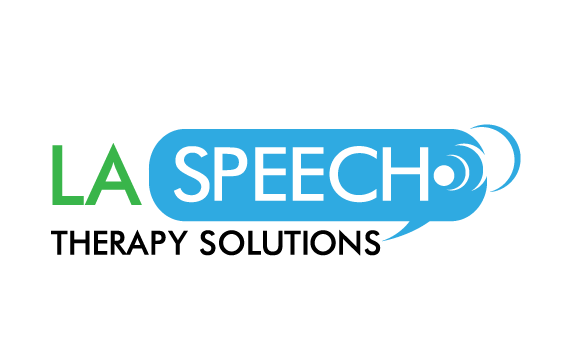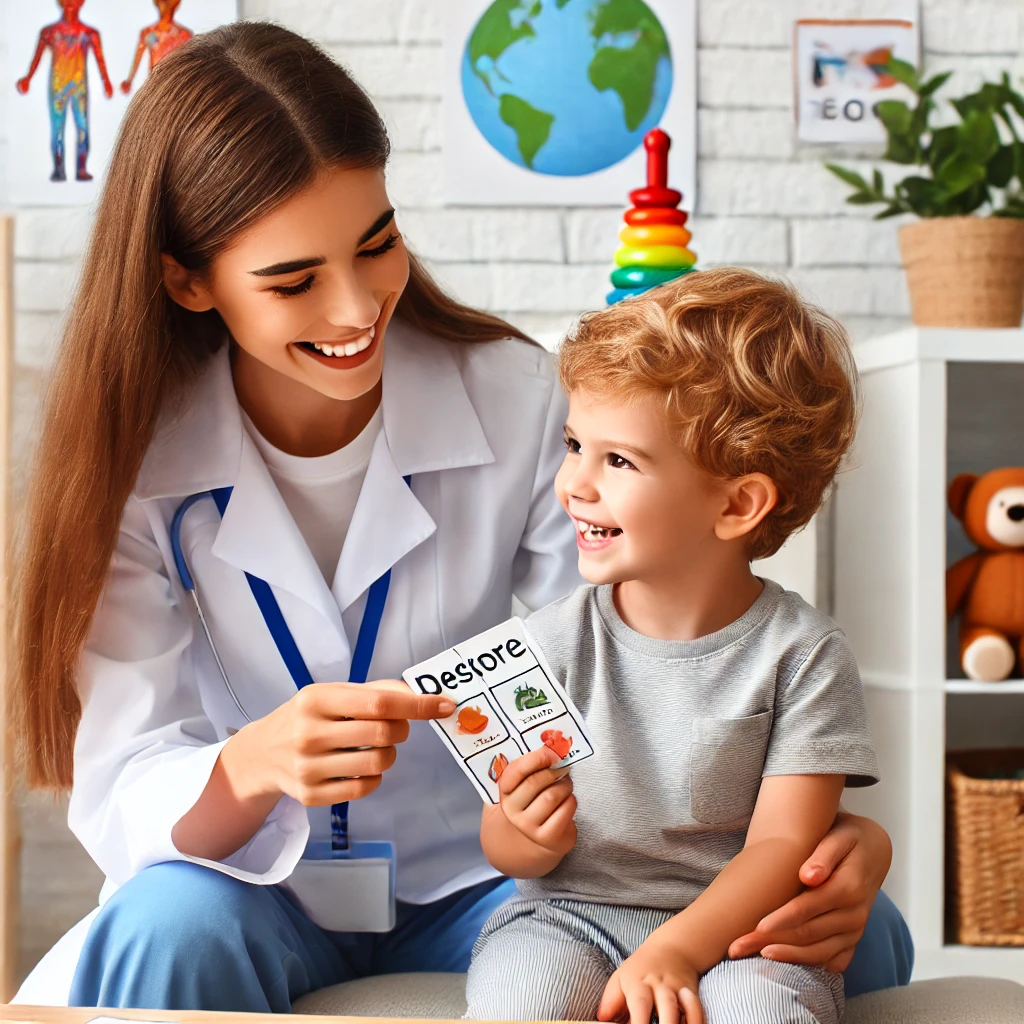
Speech therapy jobs Los Angeles offer a unique and impactful avenue for professionals seeking a career dedicated to improving lives through enhanced communication. At the heart of this profession is the role of the Speech-Language Pathologist (SLP), a skilled and compassionate professional committed to helping individuals overcome speech and language challenges.
In this exploration of the world of Speech-Language Pathology, we delve into the educational journey required, the diverse responsibilities involved, and the rewards and challenges that make this career truly special.
Educational Journey
A master’s degree in Speech-Language Pathology (SLP) from an authorized program is normally required to become a speech-language pathologist. Aspiring SLPs must complete demanding coursework and clinical practicums in order to acquire the requisite knowledge and abilities. Language development, communication problems, anatomy and physiology of the speech and hearing mechanisms, and therapeutic strategies are all frequently covered in the curriculum.
Clinical Practice and Assessments
Assessing people with communication difficulties is one of an SLP’s main duties. This entails assessing voice, fluency, language, and speech in order to diagnose particular disorders. SLPs work with a wide variety of clients, such as adults recuperating from strokes or traumatic brain injuries that impair their communication skills, children with developmental speech difficulties, and people with language problems.
Treatment Planning and Therapy
Following a diagnosis, speech-language pathologists create customized treatment programs to meet the unique requirements of each of their patients. To enhance communication abilities, therapy may incorporate a range of exercises, activities, and interventions. SLPs frequently collaborate extensively with clients and their families to establish reasonable objectives and advancement benchmarks.
A Multifaceted Scope
Speech-language pathologists provide their services in a variety of locations, such as private clinics, schools, hospitals, rehabilitation facilities, and even patients’ homes. Because of their versatility, SLPs can work with people of all ages, from young children with speech impairments to elderly people who have communication problems connected to aging.
Collaboration with Other Professionals
Speech-language pathologists frequently work in conjunction with a multidisciplinary team that consists of medical professionals, teachers, psychologists, and occupational therapists. This cooperative method guarantees a full comprehension of a patient’s requirements and enables all-encompassing treatment. Successful collaboration and effective communication are essential for SLPs.
Rewards of the Profession
The benefits of being a speech-language pathologist are numerous. It is immensely satisfying to watch clients change as they acquire or rediscover good communication skills. SLPs frequently develop deep relationships with their patients and their families, which enhances their quality of life on the whole.
Challenges in the Field
Even if the field is very rewarding, there are difficulties in it. Speech-language pathologists may come into situations that call for creative solutions, and sometimes advancement is sluggish. It can also be difficult to juggle administrative duties and manage a varied caseload. The benefits SLPs provide to the people they assist, however, exceed the difficulties.
How to Become a Speech Pathologist after Graduation
A fulfilling profession as a speech-language pathologist (SLP) is accessible to graduates who have a love for assisting others in communicating successfully. Here’s how to turn your academic background into a rewarding career in speech pathology, step-by-step:
1. Pursue a Bachelor’s Degree:
Start by obtaining a bachelor’s degree in a relevant discipline, including linguistics, psychology, or communication sciences and disorders. Even though some graduate programs in SLP accept students with a variety of undergraduate backgrounds, having experience in a similar discipline might be a great starting point.
2. Fulfill Prerequisite Courses:
Many SLP graduate programs have specific prerequisite coursework requirements. Classes in languages, statistics, anatomy, physiology, and psychology may be among them. Make sure the courses you completed as an undergraduate meet the requirements of the graduate programs you are considering.
3. Gain Relevant Experience:
During your undergraduate years, seek opportunities to gain hands-on experience in the field. Participating in volunteer work or employment in speech pathology-related environments, such as clinics, schools, or medical institutions, can enhance your graduate program application and offer insightful experiences.
4. Research and Choose a Graduate Program:
Look for accredited Master’s programs in Speech-Language Pathology. When looking for certified schools, the American Speech-Language-Hearing Association (ASHA) is a reliable source. When making your choice, take into account elements including the program’s concentration areas, clinical opportunities, and faculty expertise.
5. Complete a Master’s Degree in Speech-Language Pathology:
Enroll in a Master’s program in Speech-Language Pathology to obtain the necessary education and clinical training. Coursework and supervised clinical experiences are also part of these two-year programs.
6. Engage in Clinical Practicum:
Clinical practicum experiences are a crucial component of SLP education. You can put your academic knowledge to use in practical situations under the supervision of knowledgeable supervisors thanks to these hands-on chances.
7. Obtain Required Certifications:
After completing your Master’s degree, you’ll need to obtain the necessary certifications to practice as an SLP. This usually entails obtaining the ASHA Certificate of Clinical Competence in Speech-Language Pathology (CCC-SLP). State-specific licensing requirements may differ.
8. Consider Specialization or Advanced Certification:
Some SLPs choose to pursue specialization or advanced certifications to further enhance their expertise. Specialties may include augmentative and alternative communication, pediatric speech therapy, or fluency issues.
What jobs can you have as a speech-language pathologist?
For those who are interested in a more specialized employment environment, a Speech-Language Pathology (SLP) clinic provides a targeted setting where experts can address a wide range of communication issues. The many positions and opportunities that speech-language pathologists have in a clinic setting are examined in more detail below:
1. Clinical Speech-Language Pathologist:
The cornerstone of any SLP clinic is the Clinical Speech-Language Pathologist. These specialists evaluate and identify communication issues, create individualized treatment programs, and collaborate one-on-one with patients to enhance their voice, speech, language, and fluency. They might focus on adult neurogenic illnesses, accent modulation, or pediatric speech therapy.
2. Pediatric Speech-Language Pathologist:
Within a clinic specializing in pediatric speech therapy, SLPs focus on addressing communication challenges in children. Assistance with articulation, stuttering, language development, and other speech-related problems may fall under this category. Pediatric SLPs frequently work together with families and other medical specialists to establish all-encompassing support networks.
3. Adult Speech-Language Pathologist:
A few clinics specialize in treating adult patients, especially those who are recuperating from strokes, traumatic brain injuries, or neurological conditions that worsen with time. SLPs with an adult focus focus on swallowing challenges, cognitive-communication disorders, and communication skill restoration.
4. Voice Clinic Specialist:
Speech-language pathologists with a particular interest in voice disorders may find roles in clinics specializing in voice care. Through therapeutic interventions, they assist people whose vocal quality is affected in regaining or improving their voice.
5. Fluency Disorder Specialist:
Clinics may have professionals specializing in fluency disorders, such as stuttering. These SLPs use research-proven methods to increase confidence in communication, decrease stuttering, and improve fluency.
6. Augmentative and Alternative Communication (AAC) Specialist:
SLPs with expertise in AAC may work in clinics dedicated to helping individuals with complex communication needs. They evaluate, put into practice, and instruct clients on a range of AAC systems, such as symbols, communication devices, and techniques to improve nonverbal communication.
7. Clinic Director or Manager:
Experienced Speech-Language Pathologists may take on leadership roles as clinic directors or managers. In these roles, they supervise the clinic’s daily operations, manage the workforce, and guarantee the provision of top-notch services. Clinic directors could also work on developing programs and doing strategic planning.
8. Clinical Supervisor:
Within a clinic setting, SLPs may take on supervisory roles, guiding and mentoring clinical fellows, graduate students, or less experienced clinicians. Clinical supervisors are essential to maintaining the caliber of clinical services and promoting professional development.
9. Research and Development Specialist:
To further the field of speech-language pathology, certain clinics may take part in research and development initiatives. In this capacity, SLPs concentrate on investigating novel approaches to treatment, evaluating the efficacy of therapies, and keeping up with the most recent developments in the area.
10. Coordinator of Continuing Education:
Professional development is frequently given priority in SLP clinics. Clinic staff members are provided with continual learning opportunities by Continuing Education Coordinators, who make sure that physicians are up to date on the most recent findings, effective treatment methods, and clinical guidelines.
Join LA Speech Therapy Solutions for Rewarding Speech Therapist Jobs Los Angeles!
Are you a passionate and dedicated Speech-Language Pathologist seeking an exciting career opportunity in the vibrant city of Los Angeles? Look no further! LA Speech Therapy Solutions is on the lookout for talented professionals like you to join our dynamic team and make a meaningful impact on the lives of those in need.
Your next fulfilling career awaits with speech therapy jobs Los Angeles. Join LA Speech Therapy Solutions and be part of a team dedicated to making a difference one communication breakthrough at a time!





